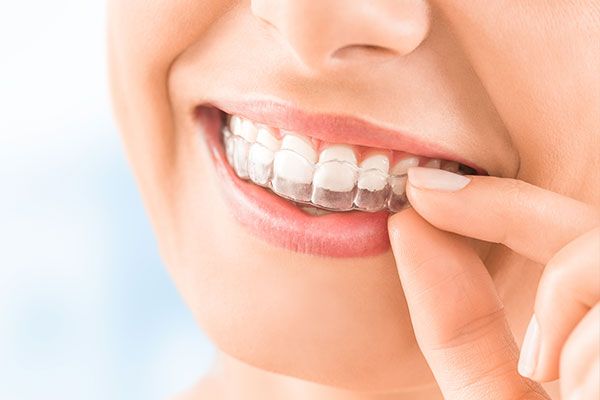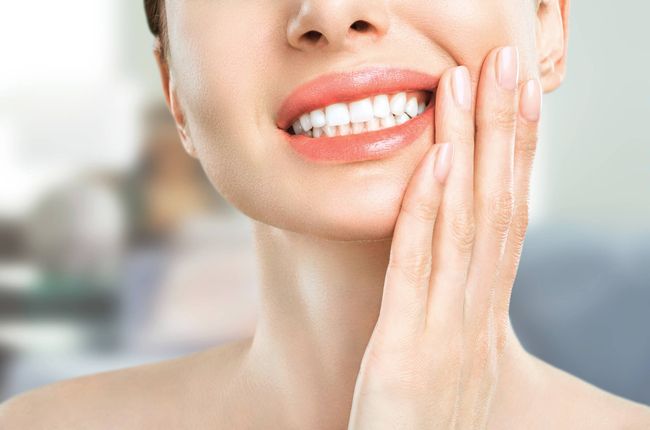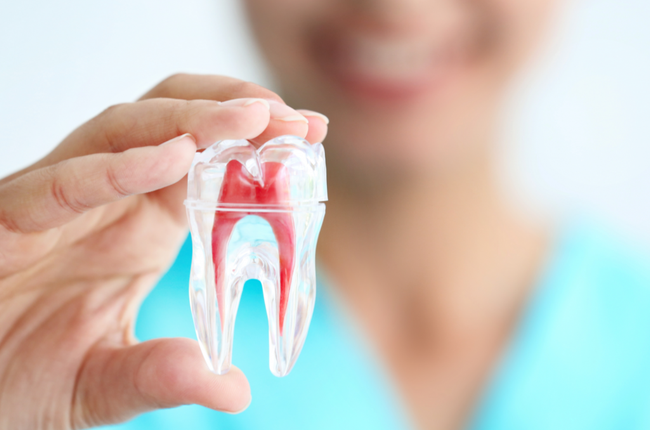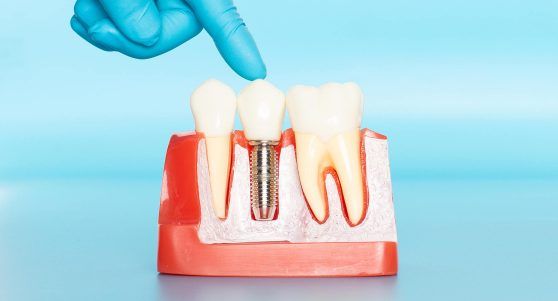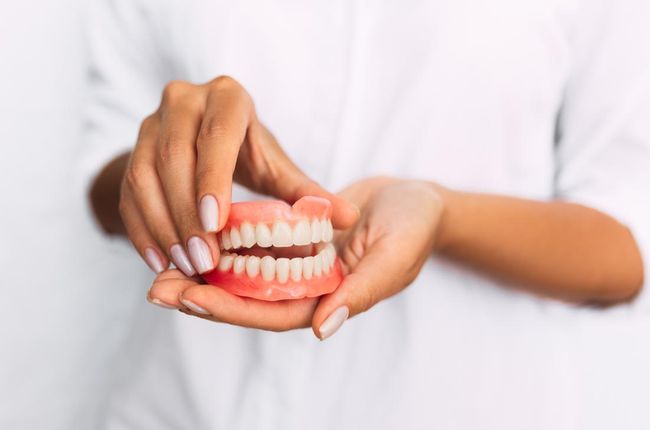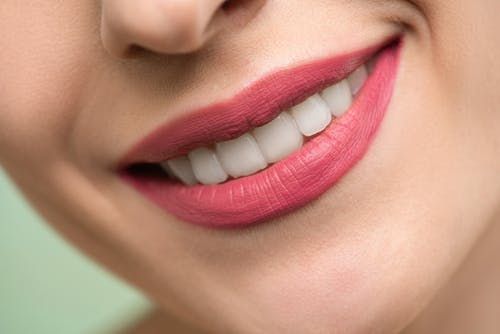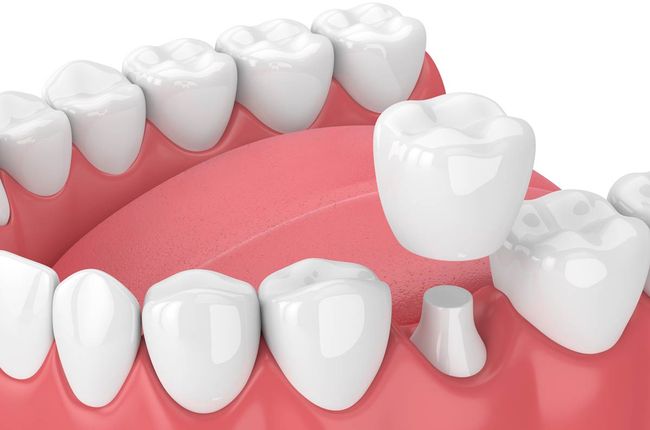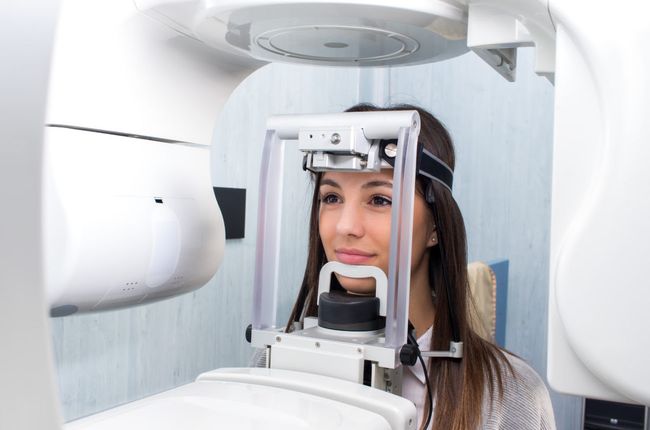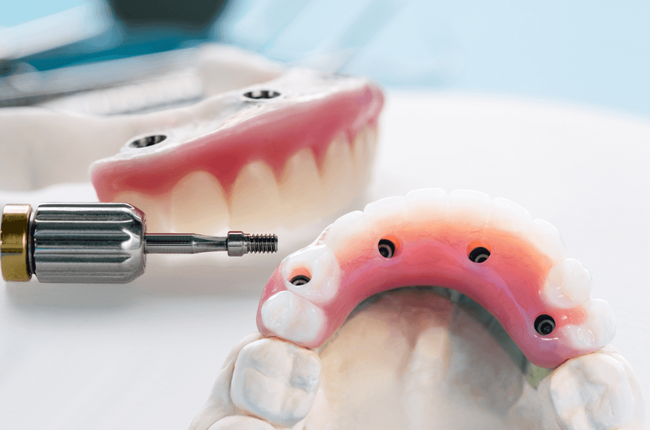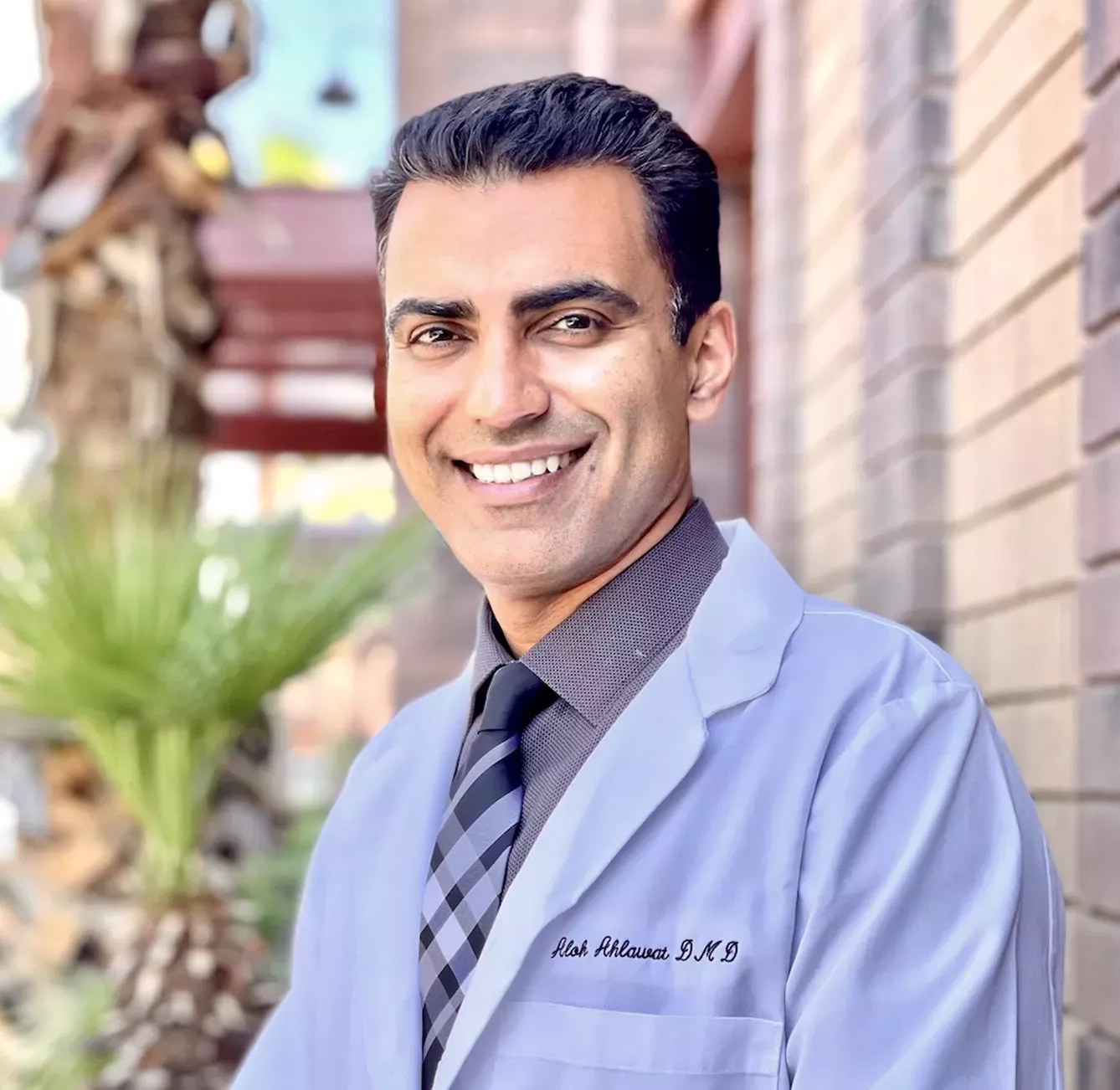Do you have questions about your dental care? We can help! Our Dentist in Mesa, AZ and team have the answers to some common dental questions in Mesa, Arizona. We hope to see you at Arizona Dental Heights to tell you more and to help you achieve the smile you have always wanted. Call our office at (480) 525-6000 to schedule an appointment with Dr. Alok Ahlawat.
The majority of people only go to the dentist when they sense a problem. Although they may believe they are saving money, the truth is that the procedures needed to fix and restore their teeth and smiles are more expensive and time-consuming than going to the dentist on a regular basis. Regular dental visits guarantee that you receive preventative care to stop issues in their early stages of development and, ideally, prevent them from ever forming. We can keep an eye on your oral health and teach you the proper oral hygiene practices so that your teeth stay strong. So, it is important that you should make at least two trips to our dental office every year.
While brushing your teeth will remove surface stains, it won't go in between your teeth or beneath the gum line. By flossing, you can make sure that bacteria and plaque are eliminated from your mouth before they may harm your teeth.
Brush your teeth at least twice daily. Brushing your teeth at night is extremely vital to ensure that no food particles or plaque are left in your mouth. Use fluoridated toothpaste and a soft-bristled toothbrush that are both ADA-approved. Daily flossing is also recommended, besides using a mouthwash. For more information, get in touch with our office.
Dental X-rays are very safe and reliable procedures. Dental X-rays really expose you to less radiation than the sun does during the course of a typical day. Dental X-rays are continuing to become safer because of the improvements in digital imaging technology and faster X-rays. Additionally, every two years, X-ray machines must pass a safety and accuracy inspection mandated by federal law.
Don't hesitate to get in touch with our staff if you have dental fear. We will collaborate with you to help you feel more at ease at our office since we take your fear seriously. There are numerous methods we might employ to lessen our fear and worry. The use of lasers during your treatment rather than drills, administration of sedation dentistry, drugs to numb the treated areas, and a range of methods to ease anxiety and pain in the body or mind are some of these (guided imagery, deep breathing, biofeedback, acupuncture, etc.). Dentophobia clinics and support groups are also available.
According to the American Academy of Pediatric Dentistry (AAPD), children should have their first dental appointment about six months after the eruption of their first tooth or before their first birthday. These visits are intended to make your child feel at ease in the dental office and to check on how well he or she is growing and developing.
In fact, babies start to get teeth during the second trimester of pregnancy (about 16 to 20 weeks.) Teeth normally start to show between the ages of 6 and 10 months. As soon as your child has two neighboring teeth, you should start flossing their teeth.
For the child's appropriate development and oral health maintenance, primary teeth are important. Your child's baby teeth make it easier for:
- proper speech formation and production
- proper chewing, nutrition, and healthy digestion
- Straighter smiles in the future because baby teeth are occupying adult teeth's spaces
- superior oral health
So, we can't stress enough how crucial it is that you look after your child's baby teeth. If you have any inquiries, kindly schedule a consultation with our staff.
Cosmetic dentistry is a branch of dentistry that focuses on enhancing the look of your teeth so you can have a more attractive smile. Both restorative and preventative treatments are a part of cosmetic dentistry. The following are the most common cosmetic dental procedures:
- Teeth whitening
- Dental veneers
- Composite dental fillings
- Dental bonding
- Dental crowns and bridges
- Dental implants
- Orthodontics
To replace your missing tooth, you have a number of options. When you come to our dental office, our dentist will evaluate your mouth, talk over your treatment options with you, and go over your oral health needs and smile objectives. To restore your tooth and smile, we will create a treatment plan that is specifically tailored to you. We may talk about many tooth replacement solutions, such as:
- Dental implants
- Dental bridges
- Complete or partial dentures
Orthodontics is a branch of dentistry with a specialization in the evaluation, prevention, and treatment of dental and facial abnormalities, including crooked teeth and misaligned jaws. An orthodontist is a dental professional who completed two to three years of further training in regulating tooth mobility and guiding face development after graduating from dental school.
Orthodontics is a branch of dentistry with a specialization in the evaluation, prevention, and treatment of dental and facial abnormalities, including crooked teeth and misaligned jaws. An orthodontist is a dental professional who completed two to three years of further training in regulating tooth mobility and guiding face development after graduating from dental school.
Children should undergo their initial orthodontic examination by the age of 7, according to the American Association of Orthodontists®. Since several permanent teeth have erupted by this age, any problems that may arise will be simple to identify and address.
While children and teenagers make up the majority of orthodontic patients, more and more adults are turning to braces to enhance their smiles and dental health. You are eligible for treatment as long as your teeth and supporting structures are sound and healthy.
Gum disease or periodontal disease is an oral ailment that harms your mouth's supporting tissues and gums. It starts out as bacterial gum infection and steadily gets worse till it ruins your bone structure and gums. Gingivitis is the less severe stage of periodontal disease, and periodontitis is the more advanced stage. Since gum disease is a progressing condition that may eventually cause tooth loss or several other problems, you should have your mouth examined for periodontal disease each time you see your dentist.
Periodontal disease is the result of harmful bacteria that become trapped in plaque. When it hardens, plaque turns into calculus (tartar), which further spreads the disease in your mouth. As a result, your gums start to detach from your teeth, forming pockets that house these dangerous bacteria. If gum disease is allowed to worsen without receiving treatment, it may result in permanent damage to oral health. Symptoms of periodontal disease include:
What are the symptoms of periodontal disease?
Symptoms of periodontal disease include:
- Gums in the bite
- Gums that are red, swollen, or sensitive
- Pain in the gums or mouth
- Bleeding gums after flossing, brushing or eating foods
- Receding gums
- Teeth that are loose or are separating
- Pus between your teeth and gums
- Mouth sores
- Severe bad breath
- Changes in the fit of removable oral appliances
There are numerous causes that might contribute to halitosis (bad breath), including:
- Morning time
- Lack of proper oral hygiene
- Tooth decay and cavities
- Chronic gum disease
- Dental appliances with poor fit
- Dry mouth
- Smoking and tobacco use
- Certain diseases or disorders of the body
- Hunger, dehydration, or skipping meals
- Certain foods
Regular dental visits, drinking plenty of water, maintaining good oral hygiene, using mouthwash, and abstaining from tobacco products are all ways to prevent bad breath. If your halitosis persists, we advise that you see a doctor and find out if your foul breath is the result of a medical issue and obtain the proper care.
Dental implants are prosthetic tooth roots that provide a permanent base for
fixed or removable replacement teeth. Dental implants are an ideal option for
people in good general oral health who have lost a tooth or teeth due to
periodontal disease, an injury, or some other reason.
A dental implant is a titanium post that we surgically insert into your
jawbone to replace your missing tooth root. Once it heals and fuses with your
bone, we’ll add a custom-made crown to complete your smile.
Dental implants are a secure and stable way to replace missing teeth and
restore your smile to its natural beauty and function. As a restorative
treatment, they are meant to last for many years, even a lifetime. The success
rate of dental implants is almost 98 percent for patients who engage in good
hygiene practices and avoid damaging habits like chewing ice or opening
packages with their teeth.
The major benefits of dental implants
include the following:
- They look completely natural
- They do not inhibit healthy bone growth
- They are easy to care for
- They last a lifetime with proper care
- You can eat and speak normally with them
- They offer a permanent solution to tooth loss
- There is no special care required for them
- You will have beautiful, natural-looking teeth again
- You do not have to worry about loose-fitting dentures slipping out while speaking or eating
An emergency is any
situation that requires immediate attention. Dental emergencies can happen at
any time, whether you’re eating, sleeping, or doing something completely
unrelated to your dental health. If you have a dental emergency, it’s
important to seek emergency dental care right away.
A dental emergency
can be a result of an accident, trauma, or sudden pain in the mouth that
causes extreme discomfort or requires immediate dental treatments. Regardless
of why you’re visiting the dentist for emergency dental care, it’s
important to seek prompt care from your dentist to prevent the issue from
becoming worse. Many dental problems only get worse with time, so it’s
best to contact your emergency dentist right away.
Below are some common
causes of dental emergencies.
- Knocked Out Tooth — Losing a tooth due to an accident or injury is referred to as a “knocked out tooth.” If you can find the tooth that has fallen out, rinse it gently with water, but be careful not to remove any attached tissue fragments. Place the tooth back into the empty socket if possible, and visit your emergency dentist as soon as possible. If the tooth isn’t intact, place it in a glass of milk until you arrive at the office. The faster you can get to our office, the better chance you have of saving the tooth.
- Broken or Fractured Teeth — When teeth become cracked or broken, they can cause severe pain and eat away at the surrounding tissues if not addressed quickly. Your emergency dentist will be able to provide the necessary treatment, such as filling or repair of the affected tooth to restore its function and prevent further damage.
- Chipped or Cracked Teeth — Similar to a fractured tooth, when a tooth becomes chipped or even cracked, it can lead to serious discomfort and pain over time. Depending on the severity of the chip or crack, your emergency dentist may need to perform a procedure such as a veneer or a dental crown to protect the tooth from further damage and restore its appearance.
- Abscess — An abscess is a pocket of infection that can form around the root of the tooth. This occurs when there’s been severe decay or damage to the tooth. Dental abscesses can be treated with a root canal treatment.
An all-on-four implant is a type of denture that snaps onto four dental implants to support an entire arch of missing teeth. Unlike traditional dentures, which rest on the gums, an all-on-four implant is permanently secured in the mouth. To accommodate for the loss of natural teeth, the dentist will attach a temporary set of dentures to the implants during the healing period. Once the implants have healed, the temporary set can be removed, and permanent ones can be attached. These permanent dentures will look exactly like your natural teeth. Once your new set of teeth is complete, you will be able to eat and speak normally again without worrying that your dentures will slip out of place. Unlike a traditional full-mouth reconstruction, which requires numerous surgeries over an extended period of time, an all-on-four implant can be completed in a single appointment. Most patients experience minimal bleeding and discomfort during surgery. After the procedure is complete, most patients are able to resume their normal daily activities immediately.
A
crown is a tooth-shaped cap that is placed over a tooth in order to restore
its size and shape, as well as its function. Crowns are generally used for
teeth that have been damaged due to tooth decay or trauma. When a crown is
used to restore a tooth, the damaged tooth will first be filed down to make
room for the crown. An impression will then be made of the remaining tooth
structure, which will be sent to the lab so that a custom-made crown can be
fabricated. The crown will be cemented over the prepared tooth once the
permanent restoration is completed. Dental crowns can restore both the beauty
and function of your smile.
Bridges are used to replace one missing tooth or several consecutive missing
teeth. A bridge is a set of dental crowns fused together by one or more
artificial teeth called pontics, which fill the gap between the natural teeth.
Dental bridges provide stability to the anchor teeth and act as a cosmetic
replacement for the missing teeth, restoring your smile’s appearance and
functionality.
Normally when a tooth is lost, the surrounding teeth will
shift from their natural positions to fill the gaps. This shift in position
may result in bite alignment issues and can cause the teeth to become worn
down, weak, or damaged over time. By replacing the lost tooth with a dental
bridge, you can prevent the remaining teeth from shifting out of place, as
well as reduce the potential for additional tooth loss.
Root canal treatment involves
removing the damaged or infected tooth
pulp, cleaning the tooth’s canals, and sealing the canals to prevent
further infection. After the canals have been cleaned and sealed, your dentist
will place a crown over the affected tooth to protect it from further damage
or decay. The crown will match your existing teeth to create a seamless smile
that looks completely natural. With proper dental care, most crowned teeth
last a lifetime.
While the most common symptom of a toothache is pain, you should visit our
dentist as soon as you start experiencing any discomfort in your mouth. If you
have any of the following symptoms, contact us right away, and we will
determine whether a root canal is right for you:
- Severe and persistent tooth sensitivity
- Pain when biting down or chewing food
- A bump on the gums near the tooth
- Swelling around your tooth
- Pus or discharge coming from your gum line
- Jaw pain
- Swullen face
- Tender lymph nodes under the chin or jaw
If you experience any of these issues, call us to schedule an examination as soon as possible so we can diagnose the problem and provide the proper treatment.
Office Hours
MON - THU8:00 am - 5:00 pm
FRI9:00 am - 1:00 pm
SAT - SUNClosed
